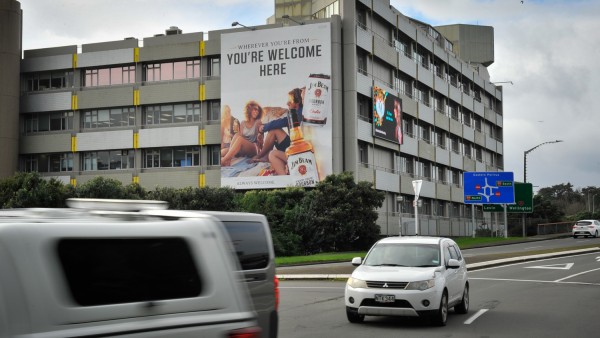This blog looks at solutions to reducing alcohol-related harm through policies on alcohol tax, availability and marketing.
This blog is part of the Public Health Solutions series looking at effective public health measures to reduce demand on healthcare quickly.
One in 20 deaths in Aotearoa are attributable to alcohol consumption, disproportionately borne by low-income communities and Māori. Alcohol consumption causes immediate demands on healthcare through treating acutely intoxicated people and alcohol-related assaults and injuries as well as from chronic conditions such as liver damage and cancers. The financial costs of alcohol-related harm are an estimated $7.85 billion each year (~20% borne directly by the healthcare sector), seven times higher than the annual alcohol tax revenue of around $1.1 billion.
Despite multiple Government reviews and persistently high levels of alcohol-related harm, the only legislative action in the 21st century (the Sale and Supply of Alcohol Act 2012 (SSAA)) has done little to address alcohol-related harm. In this blog, we recommend three effective policy approaches that could rapidly reduce alcohol-related harm in Aotearoa:
- Increasing alcohol tax
- Restricting the number and opening hours of alcohol outlets
- Banning alcohol marketing
All three recommendations would reduce health service use in the short and long term and are labelled as ‘best buys’ by the World Health Organisation.
Price – increasing alcohol tax: In 2014, the Ministry of Justice (MoJ) estimated alcohol tax increases between 82% to 133% would reduce total alcohol consumption by 12% to 20%. Such decreases in consumption would generate significant health gains and result in societal savings of between $3.4 billion over the first ten years, with ~$1 billion coming directly from health care savings.
The current alcohol tax rate in Aotearoa is lower and makes up less of the total price of alcohol than in many other OECD countries, particularly for wine and spirits. In the last 15 years alcohol has become much more affordable in Aotearoa, supporting the culture of high consumption. Bringing tax rates in line with other OECD countries would reduce demand on health services and bring substantial health and productivity gains.
Availability – restrict hours and number of outlets: Currently, the national trading hours for off-licence outlets (eg, supermarkets or liquor stores) are from 7am to 11pm, a total of 112 hours per week and we have around 63 outlets per 100,000 people. In comparison, Norway and Sweden currently sell alcohol ~50 hours per week with ~5 outlets per 100,000 people. Reducing alcohol outlet density and hours to comparable levels in Aotearoa could potentially reduce alcohol consumption by 8.6% and 9.2%, respectively.
An amendment to the SSAA to reduce national maximum hours and days of operation for off-licence outlets would be an equitable and simple approach to reduce alcohol availability. Ideally, this would restrict alcohol sales after 8pm and remove sales on one weekend day as these are the times associated with the most harmful consumption patterns.
Marketing – alcohol marketing bans: The weight of evidence suggests a causal relationship between alcohol marketing and subsequent drinking. Partial bans (eg, bans on select media) and complete bans on alcohol marketing have been estimated to reduce alcohol consumption by between 5% and 8% compared to self-regulation.
Aotearoa’s self-regulatory codes for alcohol marketing are ineffective at protecting vulnerable populations. On average, Aotearoa children are exposed to alcohol marketing 4.5 times per day, with higher rates for Māori and Pacific children compared to other children.
Totally phasing out alcohol marketing, banning alcohol sponsorship of sport, and implementing a legislative framework to regulate alcohol marketing have been recommended in multiple government-initiated reviews. Aotearoa should act on previous reviews and the latest available evidence to work towards a complete ban on alcohol marketing.
In conclusion, there are multiple policies that could be introduced in the short-term to reduce harm caused by alcohol consumption, bring substantial health gains, and reduce demand on health services.
*Author details: Tim Chambers and Anja Mizdrak are based in the Department of Public Health, University of Otago Wellington.

